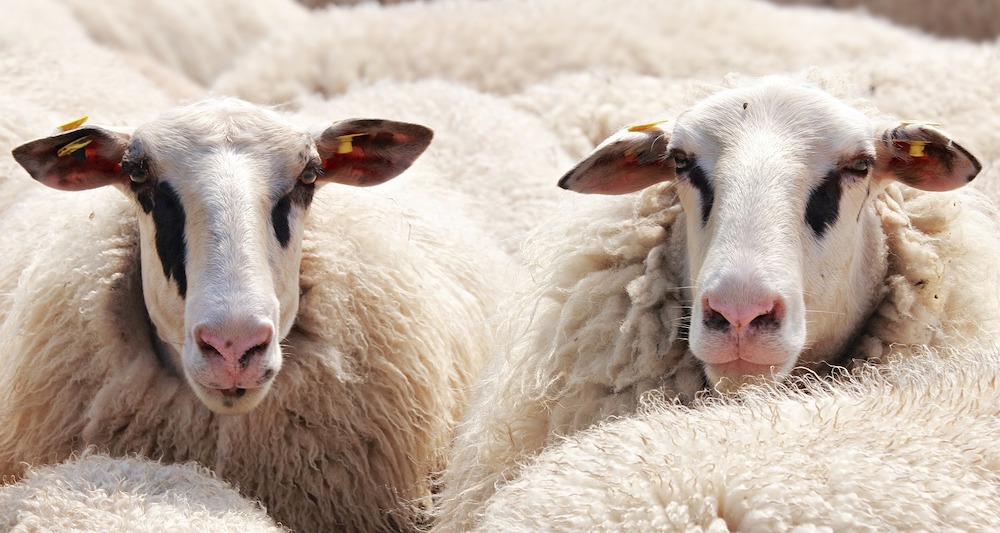Embrace wool to reduce microplastics, farmers say
7th October 2019
Welsh farmers are urging the public to embrace wool as an environmentally-friendly alternative to polyester clothing.
Welsh farmers are urging the public to embrace wool as an environmentally-friendly alternative to polyester clothing.
Synthetic clothes, made from fabrics such as polyester, nylon and acrylic, shed tiny plastic particles that eventually end up in the ocean.
The comments come as the climate change movement Extinction Rebellion descends on Westminster today (7 October). Meanwhile, the vegan movement Animal Rebellion is also beginning a two-week protest in London.
Farmers’ Union of Wales vice president Ian Rickman said: “Every year our sheep will produce a new fleece and they will do so as long as there is grass for them to graze on, making wool an excellent renewable fibre source.
“That is especially true if compared to synthetic fibres, which require oil and refineries and are a non-renewable resource for man-made fibre production.”
Mr Rickman said sheep farmers work actively to safeguard the environment and improve efficiency in livestock production.
He added: “We feed the nation with sustainable and well cared for lamb and take our responsibility to look after the environment seriously. We share concerns about plastic and micro-fibre pollution in our oceans and soil, as well as pollution from fossil fuels.”
Fabrics including polyester, nylon, acrylic and other synthetic fibres are forms of plastic and make up around 60 per cent of the material used worldwide. Tiny plastic particles shed from our clothes eventually end up in the oceans and take a long time to degrade in the soil.
The solution, Mr Rickman said, is locally produced wool.
“There are over 10 million sheep in Wales, which means we have access to a great resource right here on our doorstep. Wool at the end of its useful life can be returned to the soil. Where it decomposes, it releases valuable nutrients into the ground and it only takes a very short time to break down. It doesn’t pollute the oceans and has many other benefits.
“Therefore, if you want to do your bit for the environment, buy local and in-season food and consider wool as a viable alternative to man-made fibres.”
Wool Week 2019, which starts today, aims to highlight wool’s natural performance qualities and ecological benefits.

